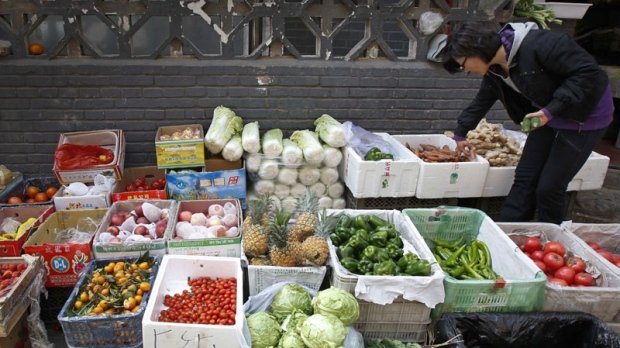
China’s consumer prices rose more than forecast in September 2013, fuelled mainly by a surge in food prices.
Prices rose 3.1% during September, from a year earlier, up from 2.6% in August, the National Bureau of Statistics said.
The bureau said that food prices rose 6.1% from a year ago due to the impact of national holidays, as well as droughts and floods in some regions.
Some analysts said that rising prices had reduced the chance of any major monetary policy moves by Beijing.
“The rise of consumer price index (CPI) inflation leaves little room for policy easing,” said Zhiwei Zhang, an economist with Nomura.
He added that prices were likely to rise further and that there was a risk the rate of inflation could even be above the government’s 3.5% target for some months in 2014.

China, the world’s second-largest economy, has been trying to recover from a recent slump which has seen its growth rate slow for two quarters in a row.
Its economy expanded by 7.5% in the April-to-June quarter from a year earlier – down from a growth rate of 7.7% in the previous three months.
There have been concerns that its growth rate may slow further in the coming months, not least because of a slowdown in demand for Chinese exports from key markets such as the US and Europe.
While there have been some indications in recent weeks that its growth may be on the mend, data released over the weekend triggered concerns over whether the recovery was sustainable.
China’s exports, a key driver of its growth, fell 0.3% in September from a year earlier, indicating that external demand continues to remain fragile.
Zhou Hao, an economist with ANZ in Shanghai, said the weak export numbers show that “the economy faces some downward pressures”.
Meanwhile, imports rose a more-than-forecast 7.4% from a year ago.